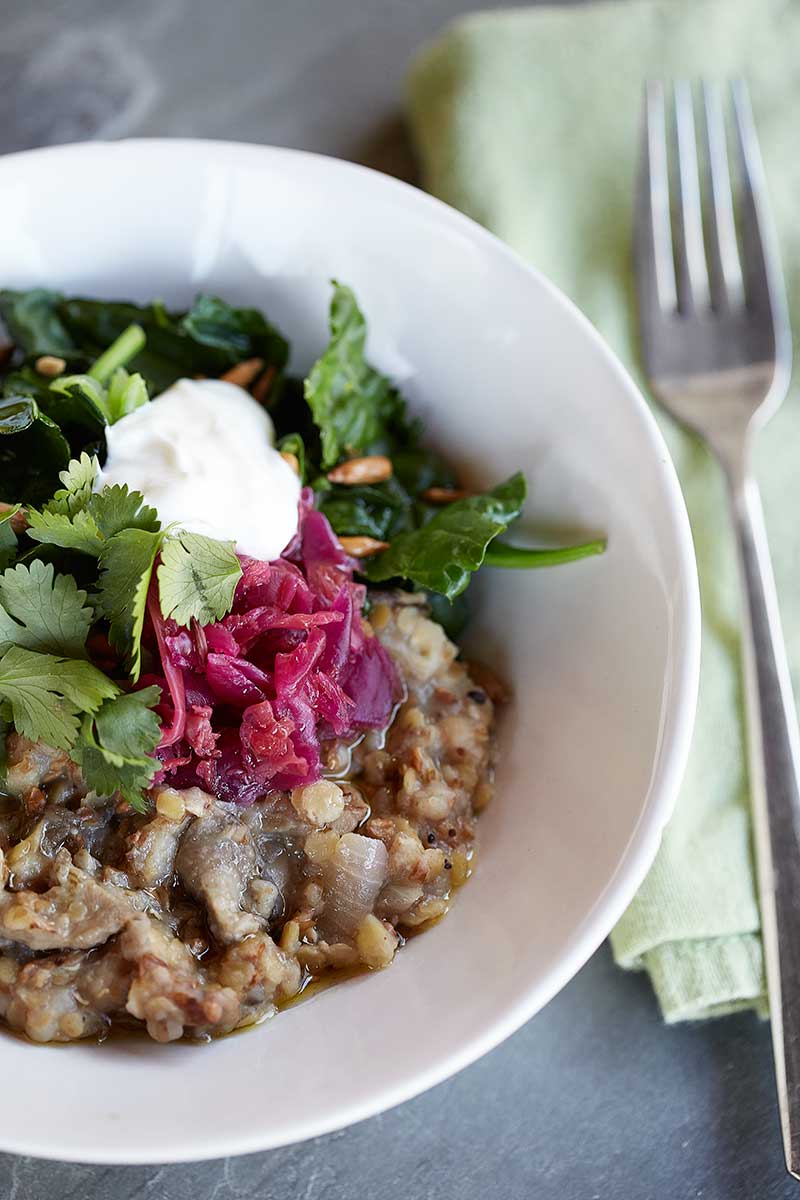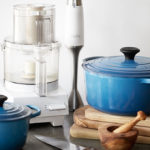
Served here with cilantro, parsley, some of the ruby kraut I’ve been obsessed with the last couple weeks, wilted spinach, a dollop of greek yogurt and olive oil.
Buckwheat always feels like home to me. It’s a staple in the Polish or Eastern European kitchen, but in this recipe it’s prepared with a Mediterranean twist.
A little bit of roasted lemon, lentils and mint make this porridge a whole new way of experiencing this earthy, grain-like seed.
Buckwheat is neither nutty like quinoa, nor creamy like millet. It has a uniquely earthy flavor probably owed to the myriad of minerals and flavonoids (phytonutrients) packed into each granule.
Whole buckwheat is an extremely nutritious food and is known to help lower the risk of developing cholesterol problems, high blood pressure, diabetes, gallstones and even colon cancer.
Now pair this amazing grain with bone broth, lentils, oyster mushrooms and chicken and you’ve got a meal that’s full of iron, zinc, magnesium, folate, potassium, many more vitamins and minerals, plus heaps of insoluble fiber.
This may seem like a carb heavy meal, but it’s quite the opposite. This meal will not spike your blood sugar. You’ll feel stable and full of energy.
For the greens portion of this dish, the spinach is more of a suggestion. You can have the porridge with a side of fresh salad greens, or any other wilted hearty grain. Another option is to simply mix the spinach into the pot with the buckwheat + lentils once their done cooking and let it wilt right in the pot.
Take it to another level by serving with this Mint Yogurt Sauce!

Buckwheat/ Lentil Prep
This is optional, but to maximize nutrient absorption and prevent de-mineralization I recommend you soak your buckwheat and lentils.
If you’re not soaking the grains, you’ll need to add about 15 minutes to your cooking time and 2 cups more liquid than the recipe calls for.
To soak, just place both together in a big bowl with plenty of water and a tablespoon of vinegar or lemon juice. Cover and let stand for about 8 hours or more.

24 hour fermented lentils and buckwheat all mixed in together, using my Euro Cuisine yogurt maker.
Place in a warm place or in a yogurt maker. Feel free to leave the grains/ legumes out for 24 hours.
If you’re not ready to cook the following day, change the water + vinegar and keep them fermenting, or drain and place in a sealed jar in the fridge until you’re ready to cook, within about 7 days.
Pour off the fermentation liquid and rinse before cooking.

Sauté cumin, onions and salt. Add broth, buckwheat, lentils, garlic and chicken (not pictured here).






